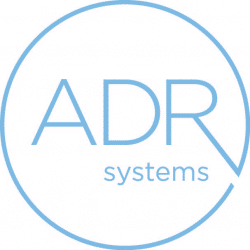We sat down with Hon. Clifford L. Meacham, (Ret.) and Hon. Stuart A. Nudelman, (Ret.), senior mediators and arbitrators at ADR Systems, to discuss some of the finer points of arbitration, hoping to help counsel avoid pitfalls in arbitration. Together, Judges Meacham and Nudelman have more than 60 years of experience overseeing trials and arbitrations. They have seen what works and what does not work in arbitration. This article is the second in a series on their observations.
In our first installment, we discussed the critical decisions that must be made before arbitration starts. This article will outline how counsel can avoid potential pitfalls in arbitration preparation.
Previously, we discussed arbitration preparation. Can you tell us about the most critical decisions in arbitration preparation and what pitfalls to avoid in each step?
Judge Nudelman: As I mentioned last time, I think every attorney preparing for arbitration should pay close attention to several preparation tasks. I see arbitrations that have a shaky start because of difficulties or snags in the process that could have been prevented with more attention to preparation. The key preparation decisions for the attorney include: what rules will be used, what agency will administer the arbitration, the powers the arbitrator will have, the schedule for the arbitration and date of the hearing, the extent of motion practice, the parameters and timeframe for discovery, what type of arbitration process will be used and whether the parties want a reasoned decision.
Judge Meacham: Judge, I think you covered them all. Let’s dive into these to explain the potential pitfalls associated with each.
What rules will be used?
Judge Meacham: Not every set of arbitration rules is created equal. Attorneys should take time to read the rules – with care. If the rules do not seem to suit the case, the parties can agree to use other rules or amend the rules. ADR Systems has Commercial Arbitration Rules as well as Health Care Arbitration Rules. While ADR Systems typically administers arbitrations under its own rules, they can also administer an arbitration using rules of other agencies by party agreement. Not using arbitration rules that fit your case and circumstances is the first pitfall to avoid.
What agency will administer the arbitration?
Judge Nudelman: Echoing Judge Meacham, not every arbitration administrator is created equal either. Agencies offer different types of services and prices for administration. However, excellent client service does not necessarily correlate with higher cost. There is a need for due diligence in selecting an administrator. Busy attorneys usually prefer an administrator that coordinates all aspects of the arbitration. The administrator should be a reliable and responsive conduit between the arbitrator and the parties. I have been on the ADR Systems panel for many years and I rely on the staff to fully support the arbitration process. I respect the work of our case managers who provide hands-on administrative services for arbitration. It makes my job as an arbitrator easier, and it gives the attorneys and parties on the case peace of mind knowing that someone else is supporting them – tracking the progress of the arbitration from initiation to closure and assisting at every step. Superior administrative services are especially needed in complex arbitrations or those with many parties. Choosing an administrator that does not necessarily suit your case can result in a less than optimal arbitration experience, headaches for you and higher costs for your client.
What powers will the arbitrator have?
Judge Meacham: Arbitrators do not have the same powers as a court. The rules spell out what powers the arbitrator will have. Many of these powers will help to move the arbitration along at a faster pace. Parties can agree to increase or decrease the powers given to the arbitrator. This ability comes in handy If parties want an expedited arbitration. We will discuss this further in talking about motion practice and discovery. Parties must take a close look at what powers are granted to the arbitrator in the rules to avoid issues as the arbitration progresses. Not considering arbitral power with the other side is another potential pitfall to avoid.
What about the schedule for the arbitration and selecting a date?
Judge Meacham: As I mentioned in the first piece, if attorneys for both sides remain professional, deciding on an arbitration schedule that works for both sides is possible. In court, a judge has a calendar that is already in place. Unless the judge can clear the calendar for specific dates, your arbitration could be postponed longer than you or your client would like. If you want to get your arbitration heard quickly, make sure you set those expectations with the arbitrator (before you select the arbitrator) and the administering agency. And of course, make sure that the other side is on board. Do not choose an arbitrator whose schedule will cause delay or an agency who cannot give your case the full attention needed for timely adjudication.
What can be done to avoid slugging through an arbitration with sticky issues regarding motion practice and discovery?
Judge Nudelman: Probably the biggest pitfall to avoid in arbitration preparation is not addressing three key topics: the extent of motion practice, the parameters for discovery and specific time frames for each. If the arbitrator and the parties fail to address these things in their arbitration preparation, they will not go away. Instead, they will stick around, add expense and slow down the process: guaranteed.
- Extent of motion practice: Just like in court, motion practice can quickly increase the cost of an arbitration. Motions to strike, motions to compel discovery, among others, all take time. If parties can agree, they should first submit requests for motions to the arbitrator who can evaluate whether the motion has any practical significance and what effect it will have on the case. A good arbitrator will work with the parties to rationally and logically put limits on motion practice and manage it for the benefit of all.
- Parameters for discovery: The arbitration clause may have set parameters for discovery, and the rules chosen may contain parameters as well. Parties preparing for an arbitration need to take advantage of the fact that arbitration is a creature of contract. They can agree to restrict the scope of discovery. Failing to touch this topic can be a stumbling block later in the arbitration. The arbitrator and parties must determine the scope of discovery as part of the preparation process.
- Timeframes: Another task for the arbitrator is to manage the arbitration schedule by setting deadlines for motion practice and discovery. Continuances and extensions should be the exception for good cause. The arbitrator and counsel should address timeframes as part of their preparation, and preview proposed motions and other requests.
What type of arbitration process will be used?
Judge Meacham: Deciding on the arbitration process is a critical part of preparation. This is usually addressed during a pre-arbitration conference call with the arbitrator and the other side. It is in everyone’s best interest to put procedures in place to ensure that the arbitration hearing proceeds smoothly and efficiently. Parties should discuss their options: Will this be a binding arbitration or non-binding arbitration? How “relaxed” will the rules of evidence be in the arbitration? What are the rules and procedures that will govern the arbitration or what do the parties want to select instead? Counsel should avoid the trap of thinking that “arbitration is arbitration.” In other words, treating each arbitration the same. Arbitration is flexible and there is not one set of rules and procedures that apply to every arbitration. With agreement, parties can specify the rules and procedures that will be used, avoiding snags and slow-downs later.
What type of decision will be requested from the arbitrator?
Judge Nudelman: Another pitfall to avoid in arbitration is not considering whether you want a reasoned or non-reasoned award from the arbitrator. Often, the rules will specify the type of award and include a deadline for the decision. The form of the award is also important – whether conventional damages are requested, specific performance, injunctive relief or a rectification – this should be considered during arbitration preparation. If the rules do not specify the type of award, parties need to work this out. The arbitrator who is asked to provide a reasoned award may take more notes, ask more questions during the hearing and it will take longer for the arbitrator to draft the award. Since there is no standard for reasoned awards, parties must be specific. If parties want the arbitrator to provide findings of fact and conclusions of law in a reasoned award, then they should include this in their agreement to arbitrate.
……….
Hon. Stuart A. Nudelman, (Ret.) is a senior mediator and arbitrator at ADR Systems. He is highly experienced in commercial, personal injury and complex construction matters, among many others. He has resolved more than 2,000 mediations and arbitrations throughout the United States in the past eight years.
View Judge Nudelman’s Full Bio
Request Judge Nudelman’s Availability
ADR Systems, It’s Settled.®





